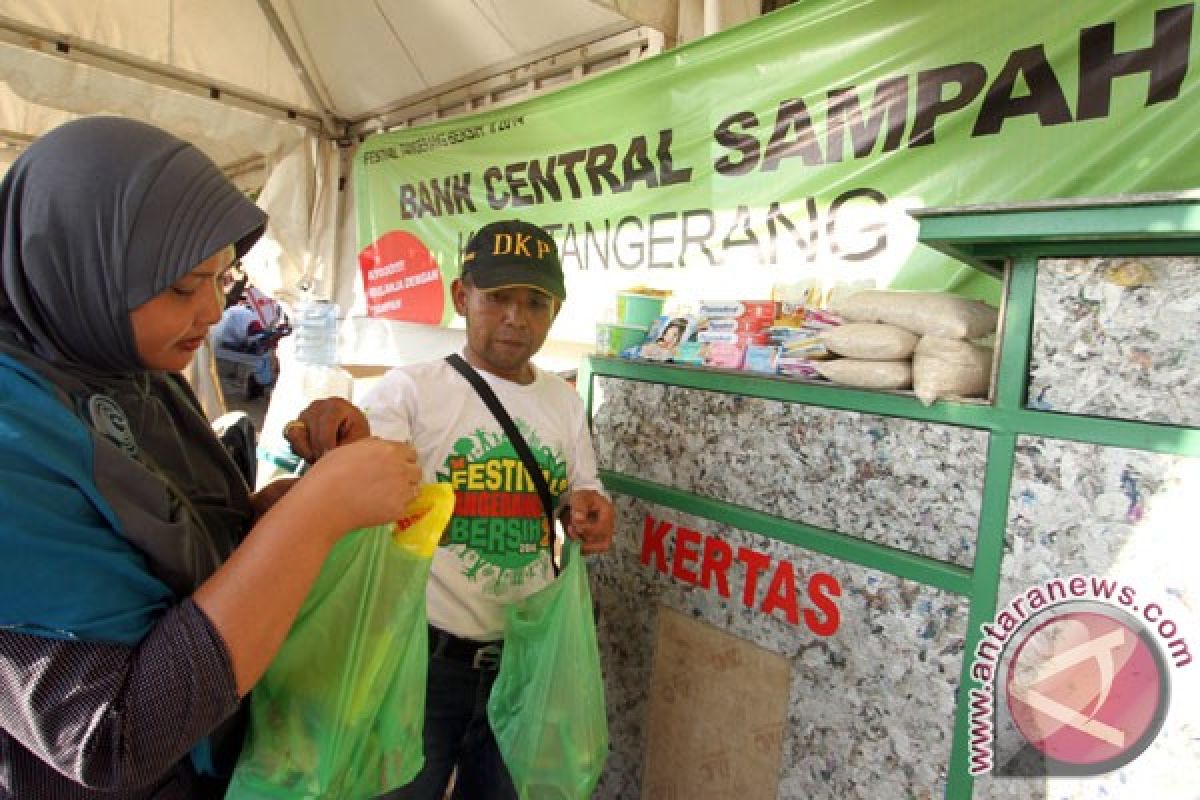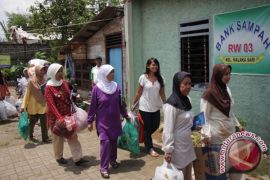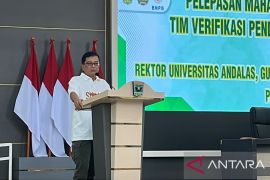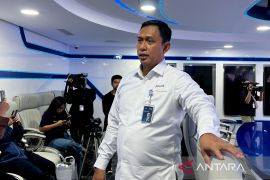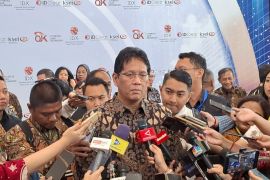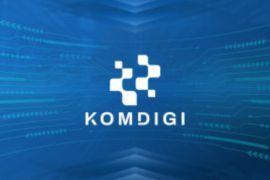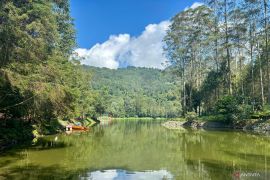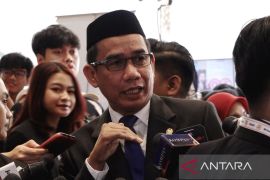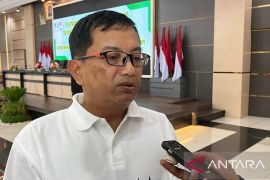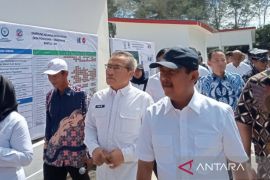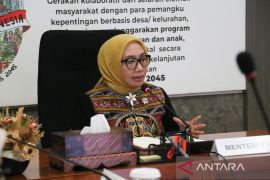We have been able to create a variety of high-quality craft products using recycled waste materials ..."Jakarta (ANTARA News) - Garbage, if sorted and managed properly, can not only makes a city clean and beautiful but can also help to improve the local economy.
From the onset, the Indonesian Environment Ministrys program of trash banks was aimed at overcoming the trash problems and increasing public awareness on waste management, but now, it is also offering economic benefits to the society.
Initiated by the Ministry of Environment, the trash bank program was believed to be an effective concept to overcome the trash problems and to create a cleaner, healthier, and more comfortable environment.
Due to a lucrative additional income from trash management, several people have been encouraged to actively and properly manage the trash problem in order to reduce greenhouse gas emissions.
In the Indonesian island resort of Bali, numerous customers of the Garuda Wastu Lestari Trash Bank have successfully created some handicraft products from recycled waste materials, and the results are now being favored by foreigners.
"We have been able to create a variety of high-quality craft products using recycled waste materials, so that they can draw the interest of several foreigners, such as from Switzerland and Britain," Garuda Wastu Lestari Trash Bank founder Ni Wayan Riawati remarked in Denpasar on Friday.
She pointed out that pencil cases, travel bags, and trendy bags are some of the craft products made from raw materials sourced from garbage that have been ordered by consumers from Switzerland and Britain.
"The price of the products that we offer varies, ranging from Rp20 thousand to Rp35 thousand for a pencil case and Rp700 thousand for a travel bag," Riawati affirmed.
She said the artisans who worked on products created from waste materials were scattered in several areas in Bali. She hoped their numbers would continue to increase and would help to reduce the amount of trash.
According to Riawati, the number of trash bank customers in Bali has reached more than six thousand people, but only two percent of them were willing to sort organic and inorganic garbage to be used as raw materials for making handicraft products.
Bambang Suwerda, who started the trash bank initiative in Yogyakarta, remarked that the existence of the garbage bank could also change the social status of scavengers who rummaged through garbage heaps to pick out inorganic waste.
Bambang stated that the scavengers who braved the heat to comb through the mountains of trash for anything salable virtually contributed to solving the waste problem.
He also noted that through the trash bank development program, the scavengers would have clear access to work with waste collectors and waste receptacles in several factories.
The trash bank program, as part of the efforts to overcome the ubiquitous problem in Indonesia, is also able to empower the peoples economy at the grassroots level.
Trash is actually a persistent problem in Indonesia as the people either burn their garbage in front of their houses or simply dump it into the rivers as they lack ways to methodically dispose it.
Consequently, a steady stream of waste materials has, for years, made its way into landscapes, landfills, and waterways, but now, several creative people have transformed garbage into handicraft and art products and have begun marketing them.
Recycling is the process of converting waste materials into new treasures or products of higher quality or for better environmental value.
Along with recycling, re-using and re-purposing are also good ways to ensure that non-biodegradable objects do not end up in landfills.
In light of this, the Cleanliness and Landscaping Service of Musirawas Utara District in South Sumatra has been able to transform household waste into economically valuable handicrafts.
"Utilizing waste to make economically valuable handicrafts can also help environmental cleanliness from household trash," Musirawas Utara Cleanliness and Landscaping Service spokesperson Herawati remarked recently.
Processing household waste into valuable handicrafts was also in line with the recommendation of the local government through the so-called 3R program such as Reuse, Reduce, and Recycle that will be implemented beginning 2016, she pointed out.
The 3R program, besides producing organic fertilizers for hydroponic plants, will also utilize plastic waste and used cloth to make craft bags and mats, apart from tissue and pen boxes, according to Herawati.
"All household waste material can be turned into economically valuable handicrafts to supplement the income of craftsmen, in addition to making the Musirawas Utara district clean of trash," she emphasized.
Since the expansion to separate from the Musirawas district in 2013, the new autonomous district of Musirawas Utara remains categorized as a disadvantaged and unclean region, with household garbage scattered around, Herawati noted.
However, the 3R waste management system can be implemented by one and all in their daily activities with the guidance of the Cleanliness and Landscaping Service officers, she added.
The officers will provide training to the public in the smallest neighborhood community and gradually run it up to the village and sub-district level, she remarked.
The implementation of the 3R system is one of the waste management solutions, in addition to processing it into compost and electricity, she noted.
The Cleanliness and Landscaping Service, in future, has also outlined a program to process plastic resin as it has good prospects, but for now, it has yet to be executed due to the absence of a plastic resin processing machine.
Waste, which cannot be processed into a household economic activity, will be used to fill areas that are hollow and can also be used to produce biogas and electric power, Herawati revealed.
The utilization of household waste to create new sources of revenue for the society can also offer an opportunity to the Musi Rawas Utara district to receive the Adipura environmental awards for clean and green cities.
(T.O001/INE/KR-BSR/A014)
Reporter: Otniel Tamindael
Editor: Priyambodo RH
Copyright © ANTARA 2016
